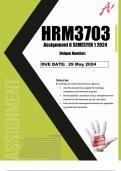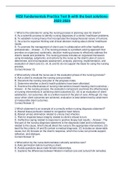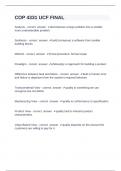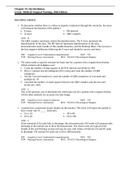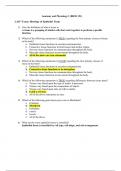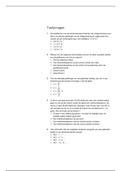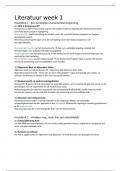Samenvatting
Summary Detailed notes on all mandatory readings for Theory of Science
- Instelling
- Rijksuniversiteit Groningen (RuG)
Detailed notes on all required readings for the Theory of Science course. They can be a real pain, so this document should make your studying way easier. The writer scored an 8.5.
[Meer zien]





